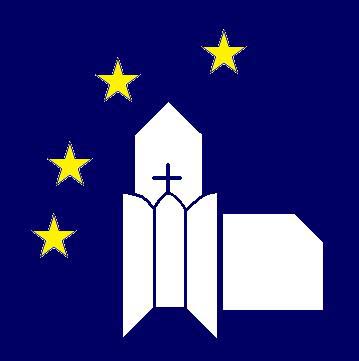From across the border
There is always some tension when an NGO or voluntary organisation interacts with the government. There are also always power differences. The government with a hefty apparatus of civil servants who have capacity to sort out complicated issues and opposite to that an average voluntary organisation who do something very important from their experience and expertise, which is to address society from the fringes. But if that tension is not there,then it's not right. Then you sit in each other's chairs too much and too little comes out of it. Similarly, the tension can be described between the big meeting of NGOs for the Council of Europe, which takes place twice a year in Strasbourg, and
the Council of Europe and the rest of the European democratic structure .On behalf of the organisation European Network Church on the Move, I am taking part also on behalf of the Marienburg Association. From 8 to 10 April, we spent whole days in the Agora and did not smoke outdoors. The meeting is mainly made up of committees that have been working on all kinds of issues again for 6 months after the last meeting.
Within the EN-RE, as we are called as a participating organisation, some shifts took place. I became head of delegation and was allowed to vote which had to be done quite often. Every three years, the leadership standing committee changes. The rules in voting are extremely strict and precise. Sloppiness must not occur. You need almost a day to read all the rules But the content of the committees' work is, of course, the most important thing. I joined the Interreligious and interconvictional dialogue Committee. 50 per cent of Europe's population belongs in one way or another to a religious tradition or has religious beliefs. But in the countries of Europe, religion and state are separated in many ways. This is entirely appropriate, but the value of religious traditions in conflict resolution, dialogue and the practice of mutual respect are invaluable. There was a strong plea to set up a permanent broad European commission on religions, but that is being blocked for now. Always this hydrophobia about religion.
Now there is some kind of committee , but it only allows representatives of Abrahamic traditions and the reader guessed it, only old men and a woman as a stopgap. The committee collects inspiring examples. We could submit the National Prince's Day. A grand interfaith event in the presence of many members of the cabinet in the Grote Kerk in The Hague. We also participate in the Commission on Migrants and Human Rights. But a new commission on Sport and Human Rights was also installed. There is a lot going on there. Gender stereotypes, hate speech, discrimination, transgressive behaviour, racism. Finally, I did an intervention on war. That box of Cassandra. People tried to put that away a bit at first, but the standing committee came back to it after some reflection. I was not looking for a statement or anything like that but rather to start thinking about termination, because weapons won't get you there. Chairman Gerhard Ermischer took ample time to formulate an answer that was not heaven-sent, but it triggered thoughts and that was exactly my intention. Impressive was the visit of the High Commissioner for Human Rights Michael O'Flaherty, only a few days into this post but promising. New ideas always come from citizens thinking. That is civil society, the beating heart of democracy.
Henk Baars 10 April 2024 Strasbourg
Translated with DeepL.com (free version)
